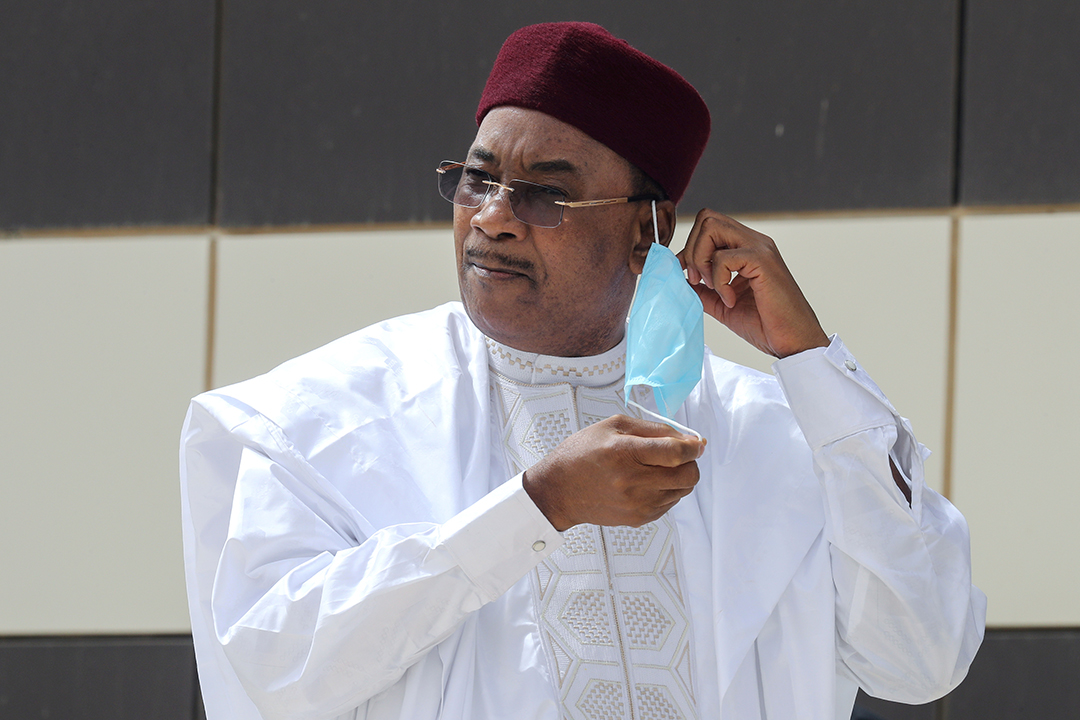ADF STAFF
It’s a $5 million prize, and the rules are very simple. To qualify, all a politician must do is leave office at the end of his or her term and have demonstrated exceptional leadership. It sounds straightforward, but it rarely has been so over the past 60 years on the African continent.
On March 8, Nigerien President Mahamadou Issoufou was awarded the Mo Ibrahim Prize for Excellence. He became only the sixth departing head of state to win the prize since it was created in 2007 by Ibrahim, a Sudanese billionaire.
A former winner of the prize, Festus Mogae of Botswana, praised Issoufou for leading his country on a “path of progress.”
“Today, the number of Nigeriens living below the poverty line has fallen to 40%, from 48% a decade ago,” Mogae said in a statement. “While challenges remain, Issoufou has kept his promises to the Nigerien people and paved the way for a better future.”
Elected in 2011, Issoufou served two consecutive terms. His successor, Mohamed Bazoum, won election in a runoff in February and will take office in April. This will mark the first peaceful transition of power between elected presidents in Niger since the country’s independence in 1960.
When asked why he chose not to amend the Constitution and run for a third term as other African leaders have done, Issoufou said he wanted to honor his word and follow the country’s Constitution.
“I respect the Constitution, and I respect the promise that I made to the Nigerien people,” he told the BBC. “This decision is in line with my convictions and my vision for what should be the democratic future of Niger.”
Niger still ranks near the bottom in many global health and economic indicators. It faces challenges, including spreading desertification and food insecurity. It also has one of the world’s youngest and fastest-growing populations.
Still, in recent years, the country has seen gains in key health measurements. In its 2019 “End of Childhood Report,” the group Save the Children found that Niger had made the greatest progress of any country on the planet in improving the lives of children during the past decade. This included reducing the under-5 mortality rate by 62% and more than doubling school enrollment rates.
Other challenges have proved tougher to address. The country has been battered by extremism with fatalities from armed conflict doubling between 2018 and 2019 and remaining at a historically high level in 2020 with 1,046 deaths. In an effort to improve security, Niger plays an active role in the efforts of two regional operations: the G5 Sahel Joint Force, which operates across five Sahelian countries, and the Multinational Joint Task Force, which operates in the Lake Chad Basin.
“If I have any regrets, it is that we are unfortunately still victims of terrorist attacks. But I would like to stress here that hotbeds of terrorism do not exist in Niger,” Issoufou said. “It is from neighboring countries that terrorists come to attack us. And when we look at what has been done even in this respect, it is remarkable.”
Discussing the prize, Issoufou stressed that there is “life after power” and said he plans to create a foundation promoting democratic values, peace and pan-Africanism.
“I am filled with a feeling of pride,” Issoufou said. “I feel honored, and through me, it is all Nigerien people who are being honored.”


Comments are closed.